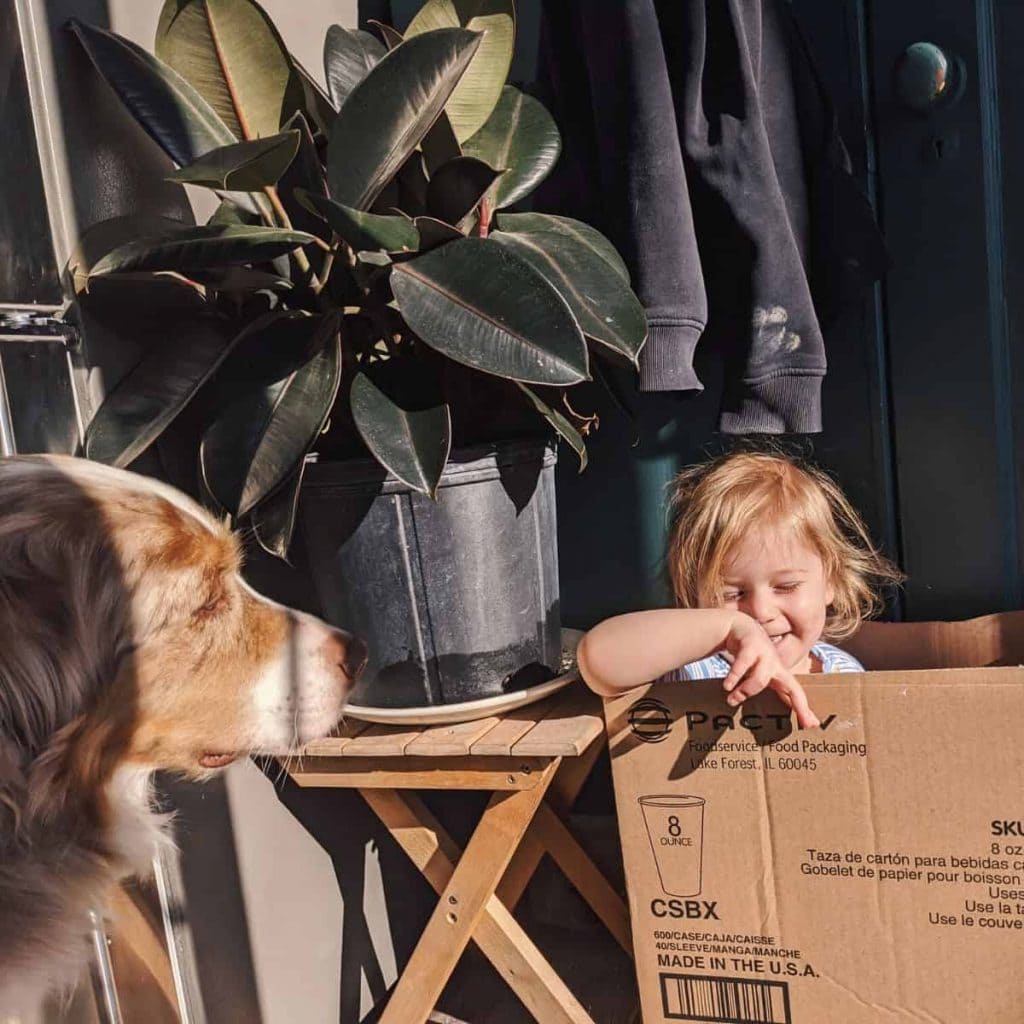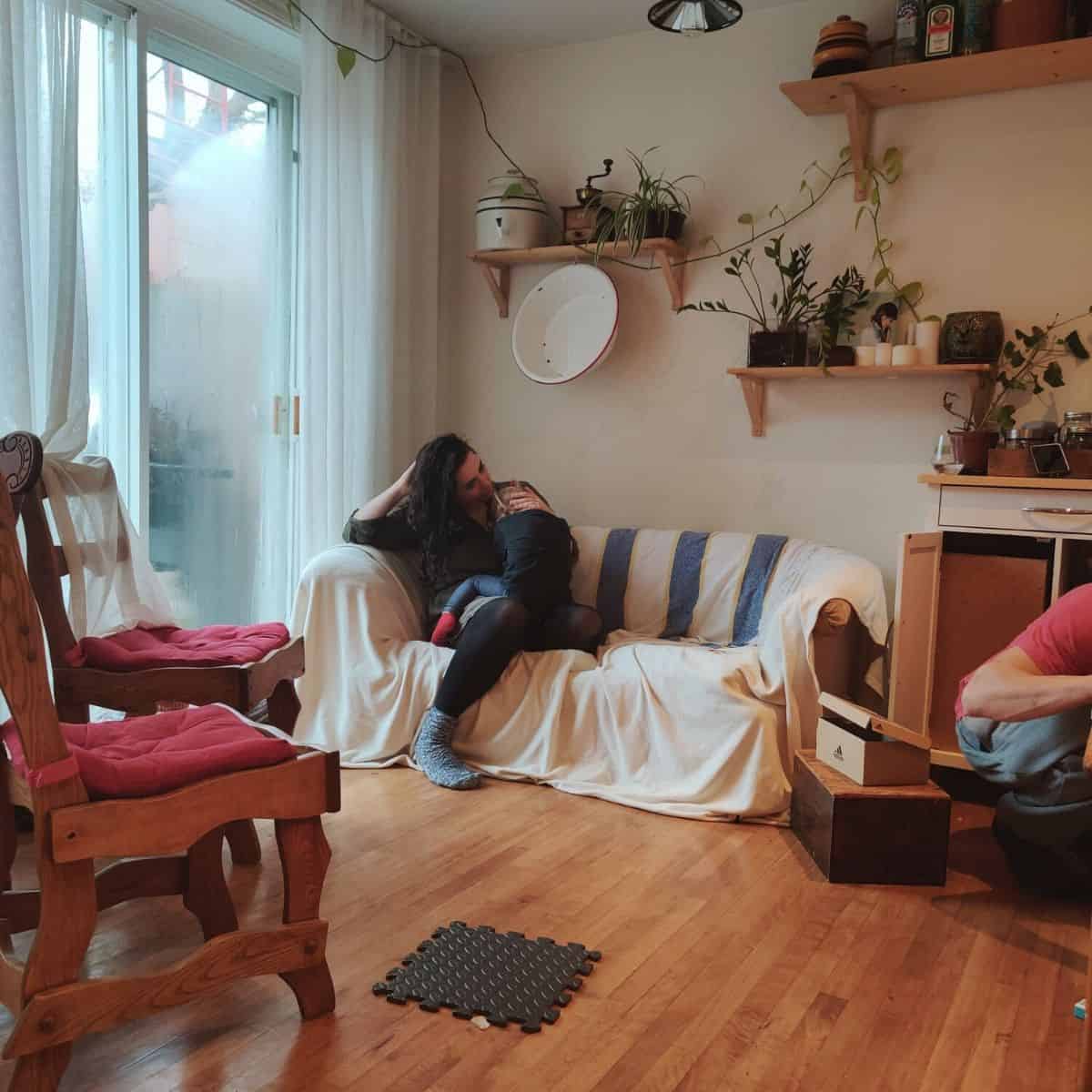In 2016, I was 40 weeks pregnant when I was told my baby’s heart had stopped beating. I was 23 years old, and I didn’t know that babies could die, let alone at such a late gestation. I have been living a nightmare ever since.
Following an outpouring of love and support from my community, I began writing about my grief and sorrows on Facebook to cope. After facilitating a Pregnancy Loss Photography Project and writing a viral post in support of the #notatriggerwarning movement, I introduced my writing to the public under the brand “Brunching With Grief.”
It’s been three years, and I am still finding new ways to articulate how my grief manifests itself in my day-to-day life.
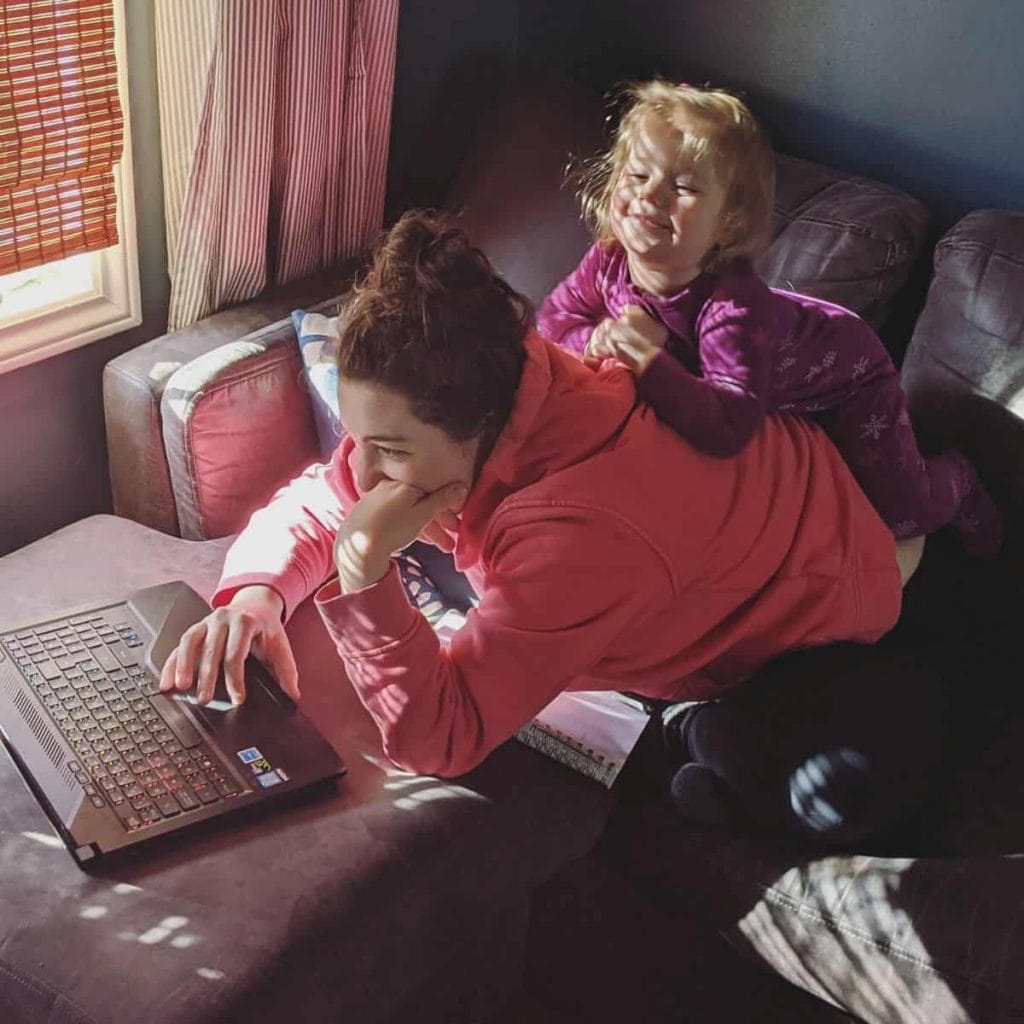

This site contains affiliate links, meaning that we earn a small commission for purchases made through our site. We only recommend products we personally use, love, or have thoroughly vetted.
Inviting Grief In
As a grief writer, I purposely engage with my grief. I show up for it and invite it to sit with me at the table.
I accept it, and through this process I manage to manipulate it into art. I draw words from my sorrow and spin them into beautiful paragraphs full of commiseration and empathy.
When it comes to trying to express the emotional rollercoaster that is parenting after your child dies, my words always seem to fall short.
And it’s not just me, either.
Many parents who are also screaming their grief and fighting the stigma also struggle to articulate the reality we face living in juxtaposition with our surviving children.
Trying to navigate celebrating your living children with remembering your dead children is an uphill battle.
But in honor of those who are fighting this fight and tackling this reality, I am going to try.
Three years later, and I am still living parallel existences.
My inner dialogue is suffocating. Each moment of frustration or desperation is met with a reminder of Senna’s absence that slices through me.
It hurts so much. All of the time.
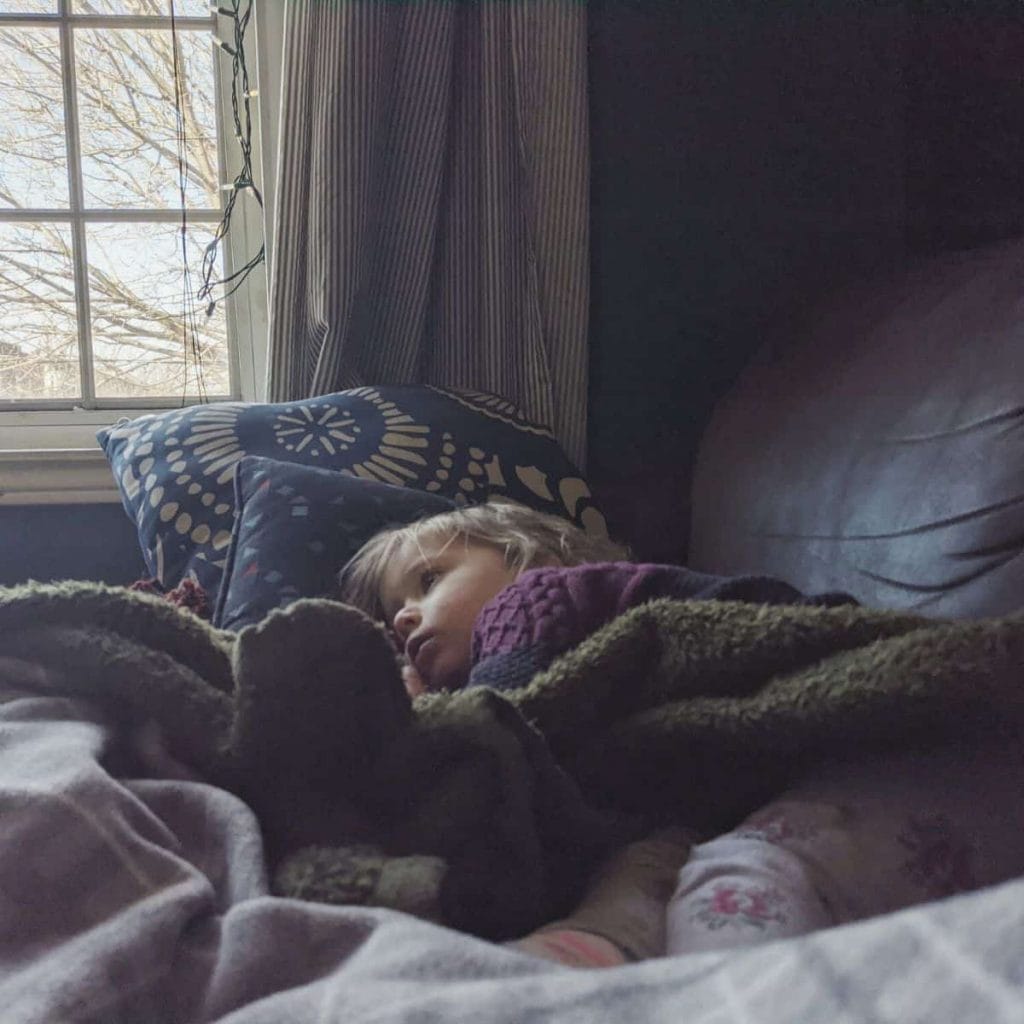
The Guilt
Parenting any child under any circumstances is hard. It is natural to want time to yourself or to have moments where you’re overwhelmed and frustrated.
Any parent with a lick of compassion will experience guilt for their agitation towards their unsuspecting children, but when you’ve buried or cremated a child, that guilt is exacerbated.
Parents of loss know all too well what it would be like if your child wasn’t here, and you cannot fathom why you would ever wish them away. Even for a brief moment.
Whenever I catch myself dreading the process of getting Cyan dressed for daycare only to inevitably undress them when they get there, my gut wretches.
“What would it be like to have to do this with two children?” I ask myself. “I can barely manage Cyan; would I be able to handle it if Senna were alive?”
Ouch.
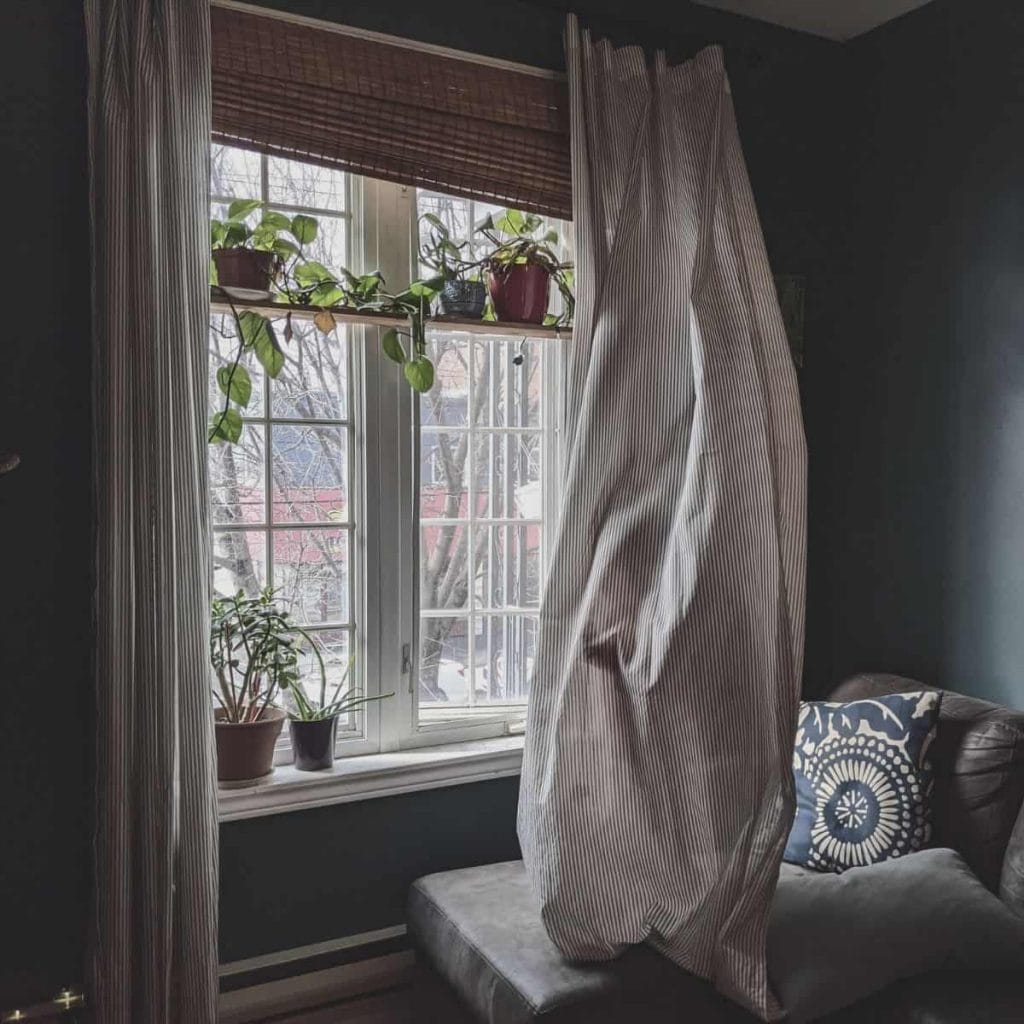
I know in my heart of hearts that parenting two living children must be easier than parenting one living child and one dead one… but still, I wonder.
Would I be cut out for it?
How would I manage?
Are we only able to be such great parents to Cyan because Senna died?
Is there a place for Senna in our lives?
What would our family look like?
Would Cyan even exist if Senna hadn’t died?
Whoa. That is a lot to carry. Take a breath, Hannah.
Parenting after loss leaves a lot beneath the surface
Here’s an example of the type of loaded conversation my husband and I have while parenting after loss.
“When you have two children, they play together sometimes, right?” I asked my husband in a moment of desperation during a breakfast time tantrum. “Of course they do,” he replied casually as if this were the most natural thing in the world. Then we both get tears in our eyes but quickly refocus on surviving the next few minutes. Cyan needs us right now; there isn’t any room for tears or mourning.
This is what my inner dialogue can sound like:
“Ugh, I can’t handle this. I just need to be somewhere quiet for a few days!” I think to myself as I struggle to remain patient and present when I’m touched out. “But do you really want that?” “How could you say that when you already have one child who you never got to hear cry or say your name?”
In the most trying moments of parenthood, I have to reconcile experiencing the natural, normal woes of parenthood with the guilt that comes along with the unnatural trauma of losing a child.
How can I dare struggle or wish for a moment of solitude when I know just how debilitating silence can be? I would rather sit through hours of tantrums than understand what a baggie full of baby ashes looks like.
I know I am being too hard on myself, but I can’t help it.
The Flashbacks
At any given moment, I can be thrown back in time.
When I am carefully leading my toddler down the front steps, I am also remembering what it was like to walk down the same steps as we rushed to the birthing center on the day we found out Senna died.
My shirt was pink and my 40-week belly felt so heavy.
Scott was frantically de-icing the steps in front of me to make sure I didn’t fall and hurt the two people he cared most about.
As I thoughtfully buckle Cyan into the car, I am reminded of the moment I asked my sister and her then-boyfriend to please take the car seat out of the car and hide it before they picked us up from the hospital.
During the moments when Cyan chooses to wrap their stubby, clumsy hand around my finger, I remember what it was like to have to manually wrap Senna’s cold hand around that same finger as I tried to soak in every detail before we had to say a final goodbye.
When I lean into bed to kiss Cyan’s forehead goodnight, I remember how salty my tears tasted on my lips as I kissed Senna on the same spot for the first, and last, time.
My soul quivers in these moments. I falter briefly and wonder if I can just collapse into myself.
But then Cyan smiles at me or yelps in excitement, and I am pushed back into my body. I carry on, my heart filled with love and longing.
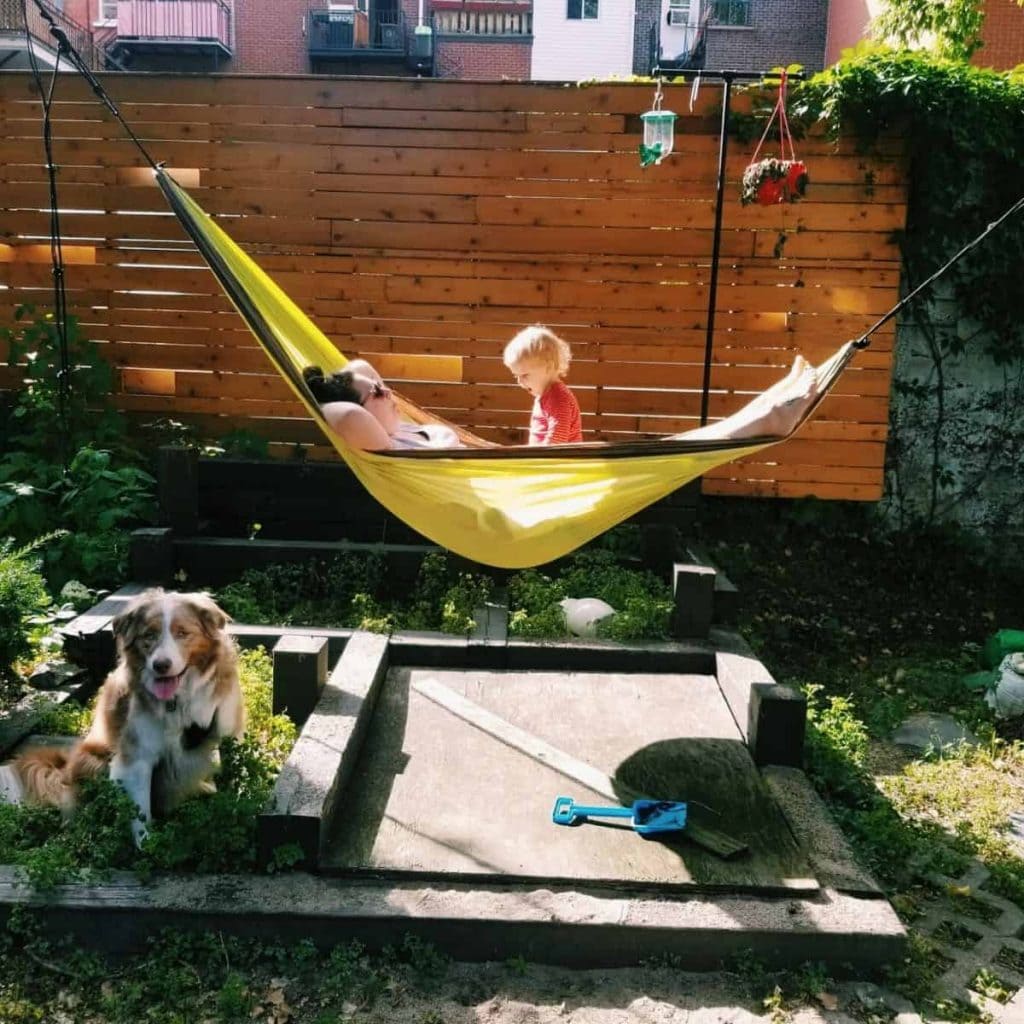
Intrusive Thoughts
Have you ever wondered what it would feel like if you were sitting in a hospital room with your helpless child lying in bed in front of you in critical condition?
Have you ever tried to bring yourself to experience what it would feel like to have to compose yourself if your children’s daycare or school was engulfed in flames?
Have you ever turned to leave your child with a babysitter only to question what you would do if you received a phone call saying they weren’t breathing anymore?
I have. And not only do I wonder; I feel.
I am too familiar with the anguish I would face in any of these scenarios. And unlike people who have yet to experience such trauma, I know how possible these scenarios are.
These imagined scenarios aren’t distant things that only happen in drama series.
For me, these are real and tangible happenings that could occur next year, next month, next week, or tomorrow.
When you know what it’s like to fall into the .05% of people who experiences the trauma of such loss, anything can be lurking just around the corner.
My thoughts are sometimes a runaway train.
I can’t say “I don’t even know what I would do if me and my toddler were hit by a car crossing the street” because I can vividly imagine what that would look and feel like without having any control over it.
It might make me feel crazy at times, but when you’ve experienced trauma like I have, these thoughts are normal.
Just writing this makes my heart ache.
I’m going to move on.
Happy moments are a double-edged sword
In all of the difficulty and hardship of parenting after loss, having the privilege to parent a living child can not only restore a sense of hope, but it can bring great joy to your life.
The depths of our grief are only matched by the depths of our love.
Because we know deep sorrow, we know deep joy. We embrace it just the same and try our damndest to leave space for it in our lives.
Well, we try anyway.
Every milestone is met by a reminder of what we are missing. In truth, it is hard to remain present and celebratory when each development box you check is met with a lingering, “I wonder what Senna would have been like when . . . ”
Filling out forms for school? You leave the “siblings” section blank.
Labeling boots and clothes for daycare? For every time you write your living child’s name, you wish you could write your dead child’s name.
Cuddling up on the couch during a rainy Sunday? You wish you were trying to squeeze one more person into the cozy bundle.
Family photos. while beautiful, are never complete.
I am at the point where my laughter and happiness isn’t met with guilt anymore.
I know that it is necessary for life to move forward, and I will find joy. But it doesn’t move away.
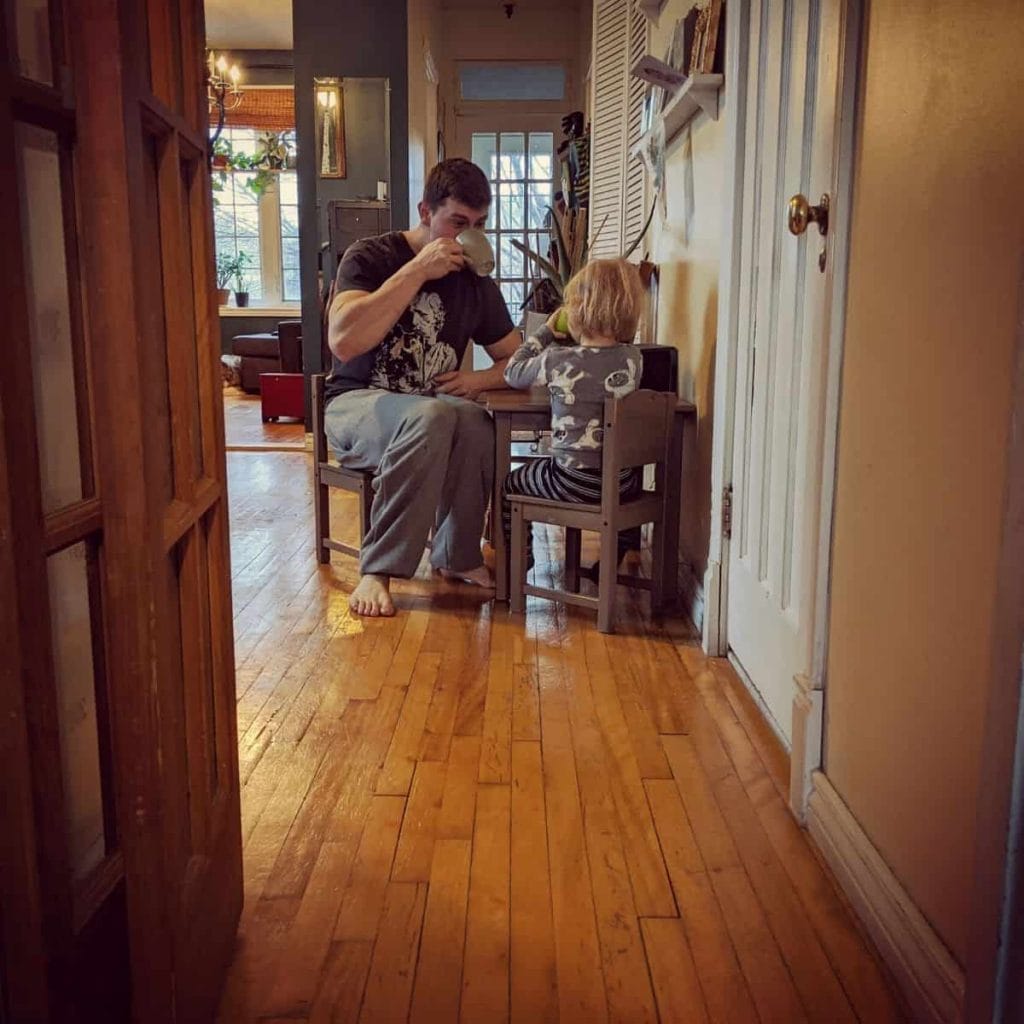
As time goes on and on and our family grows, we are reminded in new, tangible ways exactly what we lost when Senna died.
We have always had our suspicions about Senna’s temperament and personality, but as our children flourish, we wonder how accurate we can be in our assumptions.
Every first for Cyan is met by a realization of what we will not see Senna do and curiosity for who she would have been.
I know it’s going to be okay
Parenting my living child is a privilege. While I never want to take it for granted, I recognize that in the trying moments of parenthood, I do.
Even though I know that it is normal to have lapses in patience and perfection, the emotions such moments bring up for me are nothing short of agonizing.
Because I don’t just parent in the here and now, I parent in a parallel universe of should have & could have beens.
I don’t have any solution, or any encouraging words. This is hard.
When my toddler asks to cuddle, or giggles as they run across the apartment into the arms of my friends, I know I must be doing something right, but I couldn’t pinpoint what this is for you.
Grieving parents, all I can say is that this is hard and that I see you.
I see your longing, I see your triumphs, I see the invisibleness of the struggle that is parenting after loss.
You can be grieving and grateful at the same time. You can be happy and haunted.
Your children are going to love you even on the bad days. That is the greatest responsibility, but also the greatest joy.
At the end of the day, I know what I have survived and what love can overcome. So I know it is going to be okay.
